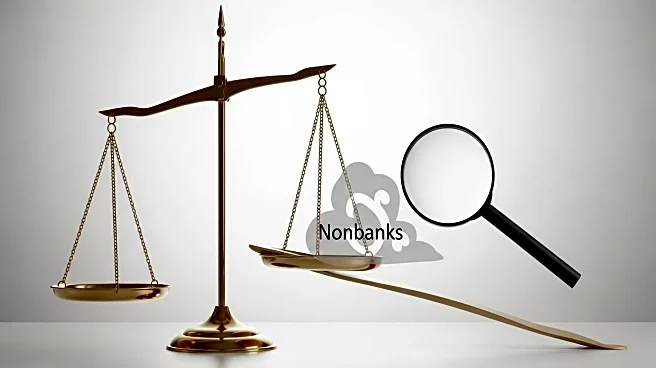What's Happening?
The Consumer Financial Protection Bureau (CFPB) has proposed a new rule aimed at narrowing its supervisory authority over nonbank financial institutions. Announced on August 26, 2025, the rule seeks to limit oversight to cases where there is a 'high likelihood of significant harm to consumers.' This proposal would define what constitutes 'risks to consumers' under the Consumer Financial Protection Act, specifically targeting nonbank entities whose conduct may threaten consumers through financial products or services. Historically, the CFPB has addressed these risks on a case-by-case basis, leading to uncertainty and inconsistent application. The proposed rule aims to provide clarity and ensure the Bureau operates within its statutory authority, focusing on 'serious conduct' related to consumer financial products.
Why It's Important?
The proposed rule represents a significant shift in the CFPB's approach to regulating nonbank financial institutions. By narrowing the scope of its oversight, the Bureau is reducing regulatory burdens on nonbanks, which may welcome the change due to enhanced clarity and reduced scrutiny. However, nonbanks that fall under the stricter standard may face challenges, as the CFPB will focus on serious conduct that poses significant consumer harm. This change could impact the financial services industry by altering compliance requirements and potentially affecting consumer protection standards. The rule's implications for consumers remain uncertain, but it aims to balance regulatory oversight with industry clarity.
What's Next?
The CFPB is currently seeking public comments on the proposed rule, with a deadline for submissions set for September 25, 2025. If finalized, the rule will take effect 30 days after publication. Stakeholders, including nonbank financial institutions and consumer advocacy groups, are likely to engage in discussions and provide feedback on the proposal. The outcome of these comments may influence the final version of the rule and its implementation, shaping the future of nonbank supervision and consumer protection in the financial sector.









